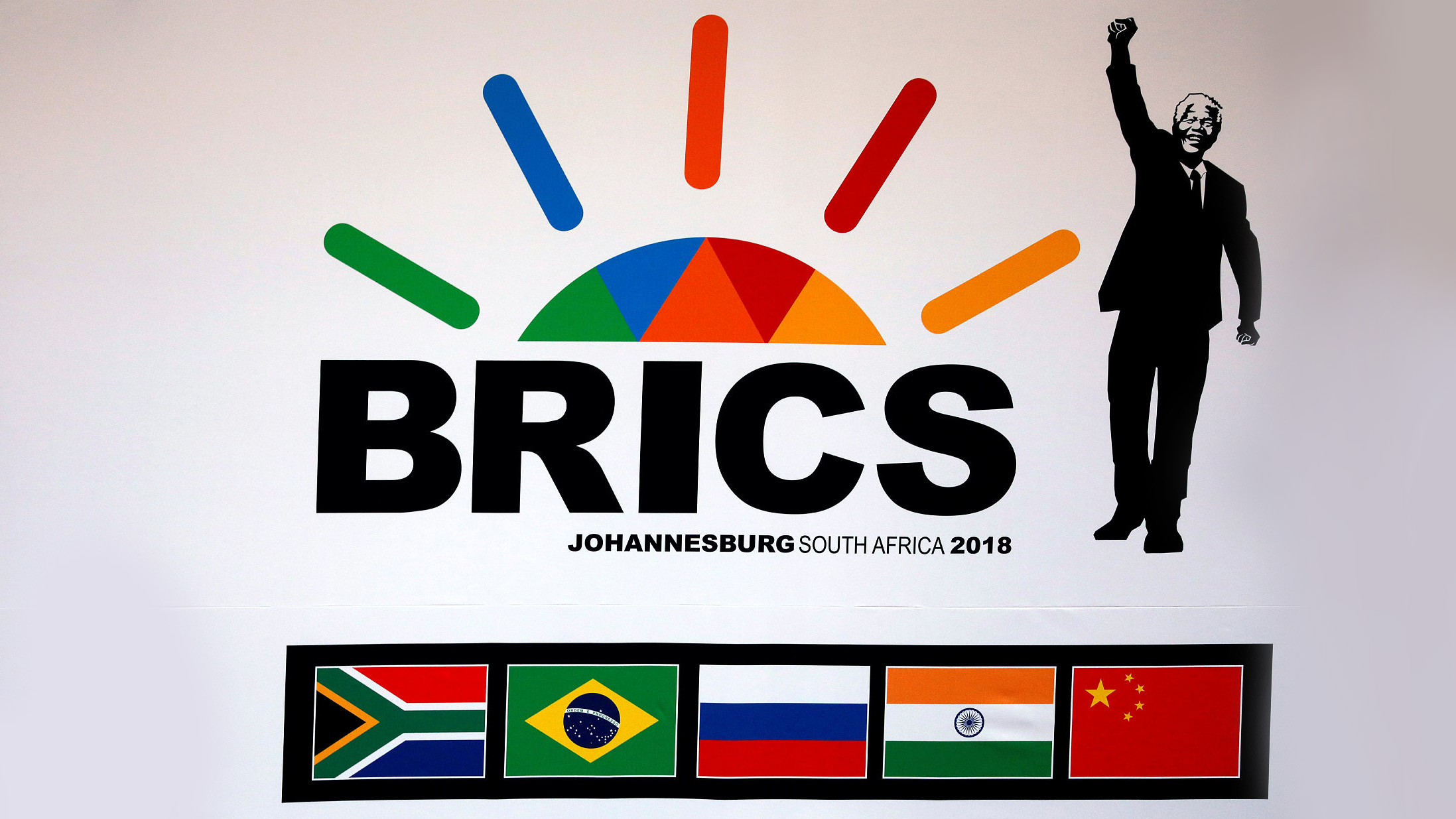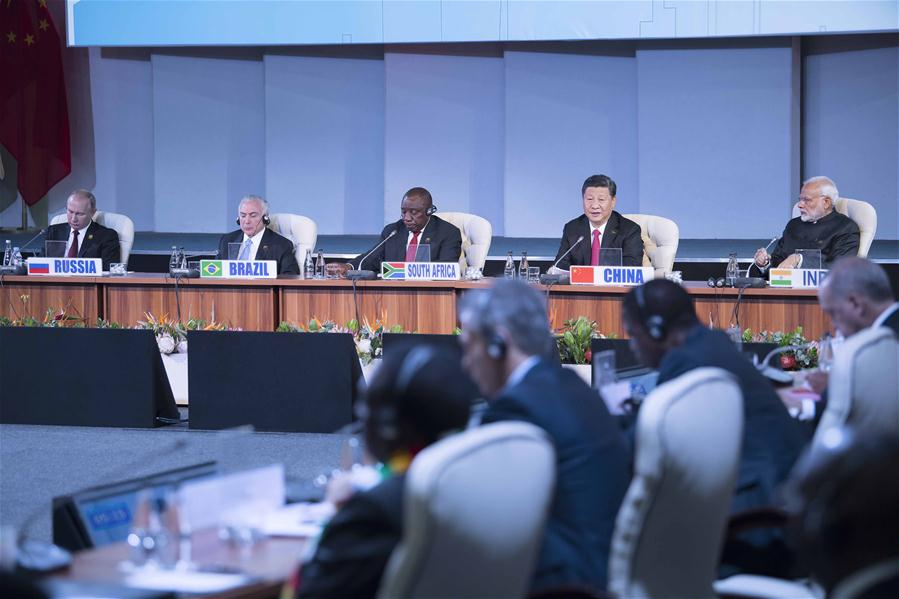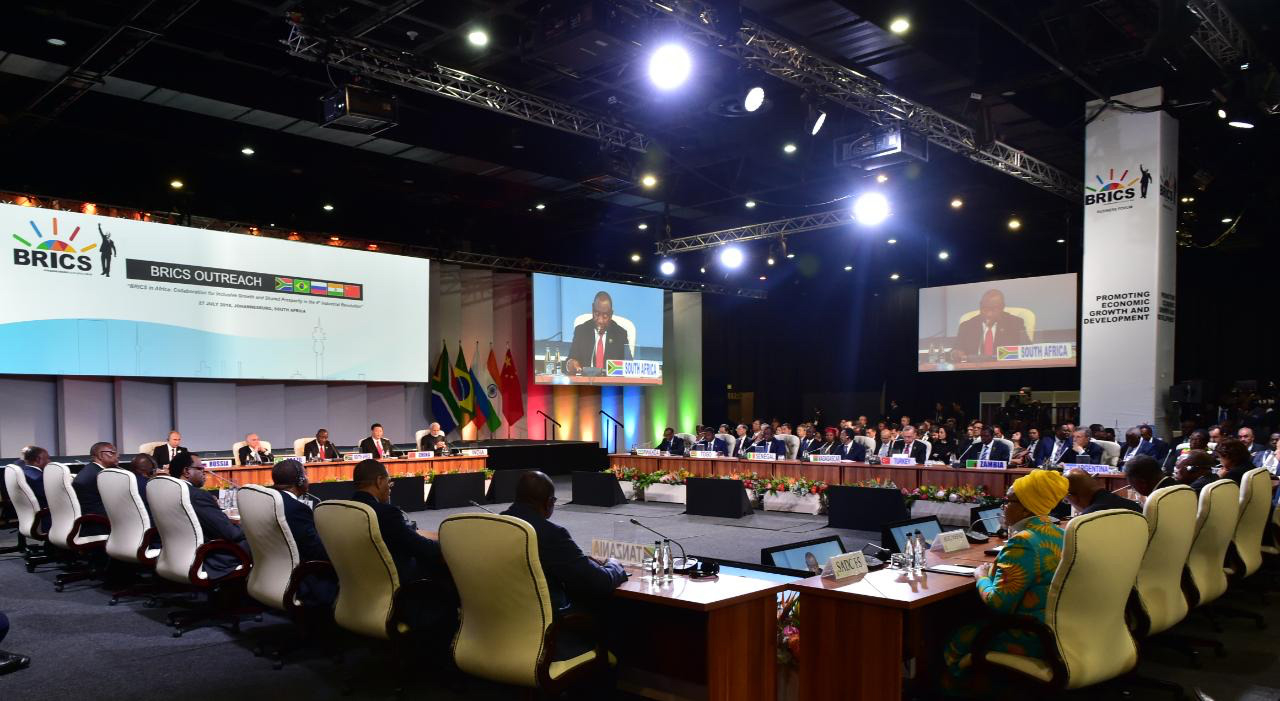
Opinions
12:54, 28-Jul-2018
BRICS Plus: An innovative model for cooperation
Updated
12:38, 31-Jul-2018
Su Qingyi

Editor's Note: Su Qingyi, a senior research fellow and deputy head of department of International Trade, Institute of World Economics and Politics (IWEP), Chinese Academy of Social Sciences (CASS). The article reflects the author's opinion, and not necessarily the views of CGTN.
It has been ten years since the BRICS mechanism was established. During this process, BRICS has undergone two significant improvements. The first is the accession of South Africa in 2011, and the second is promoting the formation of BRICS Plus in 2017. This reveals that BRICS cooperation is a continuous development mechanism.
BRICS Plus is the perfection and innovation of the current system. The main body comprises the countries – Brazil, Russia, India, China and South Africa. This is conducive to ensuring the stability and efficiency of the organization’s cooperation. However, the cooperation is an open and inclusive platform.
Moreover, BRICS Plus can help member countries understand the aspirations of other emerging and developing economies through dialogue, and promote South-South cooperation.

Chinese President Xi Jinping gives a speech to an outreach dialogue grouping leaders from the BRICS, the "BRICS Plus" and African countries at the 10th BRICS summit in Johannesburg, South Africa, July 27, 2018. / Xinhua Photo
Chinese President Xi Jinping gives a speech to an outreach dialogue grouping leaders from the BRICS, the "BRICS Plus" and African countries at the 10th BRICS summit in Johannesburg, South Africa, July 27, 2018. / Xinhua Photo
BRICS Plus is also an innovative model for cooperation among emerging and developing economies. There have been many cooperation platforms among emerging and developing economies, but they are mainly regional. Cooperating with BRICS can go beyond regional limitations.
The mechanism allows more representative emerging and developing economies from different regions to engage in dialogue and consultation.
In addition, compared to other platforms among emerging and developing economies, the topics that BRICS covers are more extensive, sometimes even reaching a global level.
BRICS countries and other emerging and developing economies will play a greater role in regional and international affairs, especially in global governance. Emerging economies have been the most important engines to the growth of the global economy in the last two decades, while their rates of economic growth are much higher than those of developed economies.

Leaders from BRICS Plus countries give their speeches during the BRICS Outreach Dialogue Session, July 27, 2018. /BRICS Photo.
Leaders from BRICS Plus countries give their speeches during the BRICS Outreach Dialogue Session, July 27, 2018. /BRICS Photo.
Emerging and developing economies are also accounting for a greater portion of global totals when it comes to important economic indicators such as GDP and trade value. For example, the total output of emerging and developing economies exceeded that of developed economies in 2010 for the first time.
Thus, the global governance system should better reflect the interests of emerging and developing economies. BRICS cooperation provides a platform for emerging and developing economies to discuss issues, demands and launch actions that will get their demands heard.
Meanwhile, they can also fight for their own interests on this platform through discussion and cooperation with developed economies, leading to new rules that will result in fairer and more reasonable global governance.
To sum up, BRICS cooperation is an important and necessary platform among emerging and developing economies. Such a mechanism is always innovating, and BRICS Plus reflects this dynamic process.

SITEMAP
Copyright © 2018 CGTN. Beijing ICP prepared NO.16065310-3
Copyright © 2018 CGTN. Beijing ICP prepared NO.16065310-3